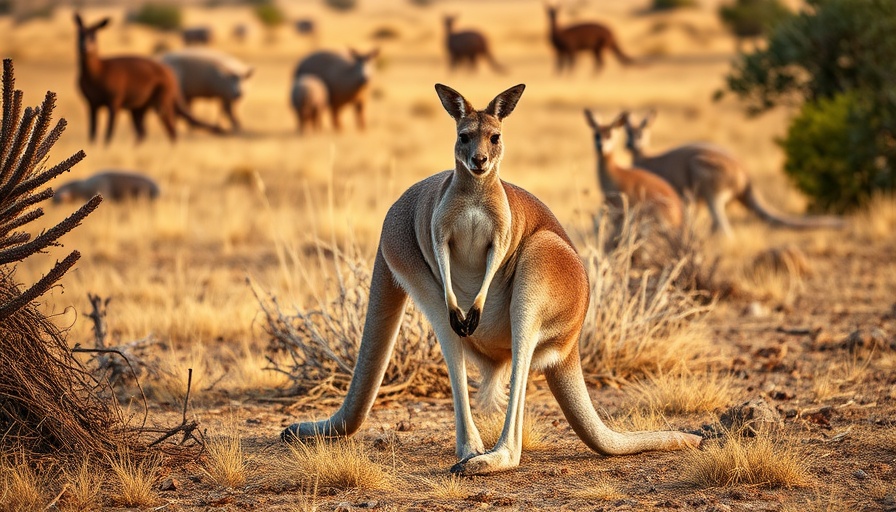
The Complex Debate Surrounding Kangaroo Conservation
The recent push by US lawmakers to ban kangaroo products has ignited heated discussions on wildlife management and ecological integrity, especially among adults in the high desert who care about conserving animals and their habitats. Introduced by Senators Tammy Duckworth and Cory Booker, the Kangaroo Protection Act denounces Australia’s commercial kangaroo harvest as needlessly cruel, stating that millions of these animals, including their young, are killed every year for profit. However, this bill has sparked a fierce debate about the actual effectiveness and misconceptions surrounding kangaroo harvest practices.
Ground Realities of Kangaroo Population Management
Professor Chris Johnson, a leading kangaroo expert, argues that the negative public advocacy surrounding kangaroo harvesting is not only misleading but deeply misinformed. He states, "The public advocacy by opponents has been very effective, but unfortunately it’s all wrong and conceptually muddled." This sentiment resonates with many conservationists who emphasize that without the commercial industry in place, kangaroo management would be severely hampered. For instance, David Littleproud, leader of the Nationals party, noted that bans could lead to overpopulation, which undermines ecological balance. He explained that kangaroo populations, when left unmanaged, can have adverse effects on local vegetation, which affects other native species.
Listening to both Sides: Perspectives on Animal Rights and Ecology
While animal rights advocates champion the ban, alleging cruelty in harvest practices, conservationists argue for a more nuanced understanding of wildlife management. It’s crucial to recognize that Australia's kangaroo population has thrived because of the effective management strategies put in place over the years. The kangaroo harvest, they argue, is a controlled method to ensure ecological stability and prevent overgrazing, which threatens other indigenous animals’ survival by reducing their habitat.
Impacts of Misconceptions on Conservation Efforts
The narrative surrounding kangaroo harvesting is affected by misconceptions that kangaroos are hunted solely for commercial products like soccer cleats. This misleading depiction fails to account for the overarching ecological implications that unchecked kangaroo populations can have on Australia's diverse ecosystems. When making decisions about wildlife conservation, it's vital to engage in a balanced dialogue that respects both animals' rights and ecological needs.
Conclusion: Taking Action for Informed Conservation
The issue of kangaroo harvests reveals the complexities inherent in wildlife conservation debates. Ongoing education for the public, as well as legislators, is essential to dispel myths and uphold sound management practices. It is crucial for those concerned about wildlife to educate themselves further about the ecological implications of kangaroo harvesting—both for kangaroos and the entire ecosystem. Providing an informed voice may help shape future policies that genuinely benefit wildlife conservation efforts.
 Add Row
Add Row  Add
Add 




 Add Row
Add Row  Add
Add 

Write A Comment